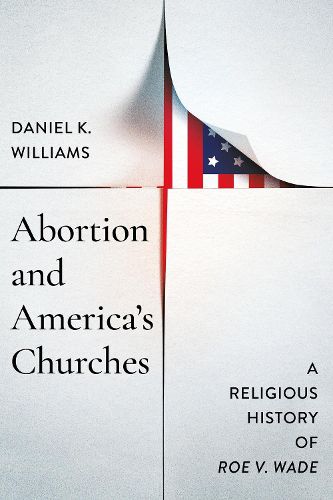Readings Newsletter
Become a Readings Member to make your shopping experience even easier.
Sign in or sign up for free!
You’re not far away from qualifying for FREE standard shipping within Australia
You’ve qualified for FREE standard shipping within Australia
The cart is loading…






Abortion and America's Churches explores the surprising history of how American Christians think about abortion.
Many people assume that Christians have steadfastly condemned abortion throughout the United States's history. Daniel K. Williams overthrows all assumptions about the unity, consistency, or simplicity of American Christian thought and belief in this groundbreaking new book. He demonstrates that churches in the United States have fought among themselves and with the wider culture as they developed and enforced their stance on abortion, revealing major struggles to define their often-changing positions. Far from a cynical exercise of political interest, changes and disagreements arose from serious theological considerations informed by each tradition's approach to the faith. These theological shifts-and corresponding shifts in interreligious political alliances-led to the changing fortunes of Roe v. Wade.
By capturing the fascinating and complicated history informing each faith's position, Abortion and America's Churches restores much-needed context to the sharp polarization over abortion today.
$9.00 standard shipping within Australia
FREE standard shipping within Australia for orders over $100.00
Express & International shipping calculated at checkout
Abortion and America's Churches explores the surprising history of how American Christians think about abortion.
Many people assume that Christians have steadfastly condemned abortion throughout the United States's history. Daniel K. Williams overthrows all assumptions about the unity, consistency, or simplicity of American Christian thought and belief in this groundbreaking new book. He demonstrates that churches in the United States have fought among themselves and with the wider culture as they developed and enforced their stance on abortion, revealing major struggles to define their often-changing positions. Far from a cynical exercise of political interest, changes and disagreements arose from serious theological considerations informed by each tradition's approach to the faith. These theological shifts-and corresponding shifts in interreligious political alliances-led to the changing fortunes of Roe v. Wade.
By capturing the fascinating and complicated history informing each faith's position, Abortion and America's Churches restores much-needed context to the sharp polarization over abortion today.